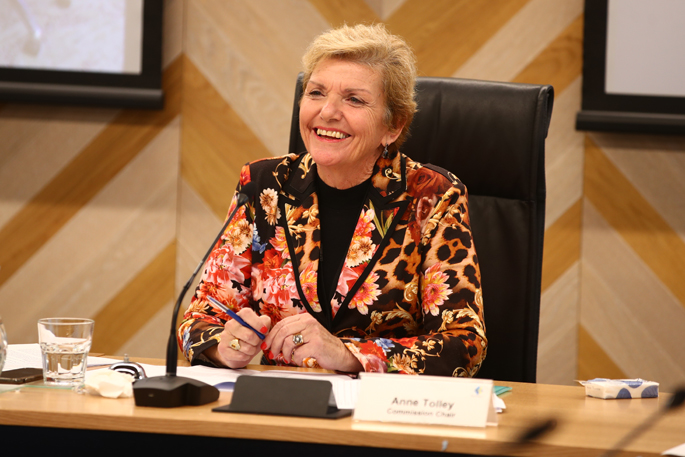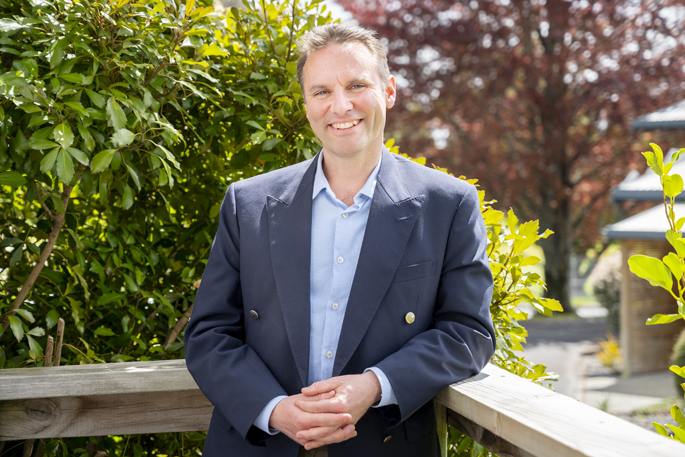A review into how local government will look in the future is suggesting reducing the number of councils in New Zealand.
In the wake of this, Western Bay of Plenty's mayor James Denyer says there 'could be efficiencies” if the district worked closer with its neighbour Tauranga.
'It's not so much about amalgamation, it's about better alignment and working together.”
The Future for Local Government review panel released their final report in June after a two year study. It included 17 recommendations to produce better outcomes for local communities.
Touted as the most significant review of local government since the 1989 reforms and the 2002 Local Government Act, one of the recommendations was 'reorganisation”.
This could mean amalgamating the country's 78 local authorities at a regional level, with two models suggested by the panel.
The unitary model would include regional council and local councils across an agreed sub-region.
A regional combined authority would have the councils remain, sharing functions and services.
Denyer says the proposals were 'interesting”.
'Inefficiencies are important, but so is local voice and any decisions we make would have to be done alongside discussions with the community.”
Asked his thoughts on a sub-regional unitary model with Western Bay of Plenty District Council, Tauranga City Council and the Bay of Plenty Regional Council, Denyer says: 'It's certainly worth exploring.”
'It's more about better coordination than full amalgamation.
'A unitary authority that covers the sub-region would probably be more palatable for local people.”
 Tauranga City Council commission chair Anne Tolley said a sub-regional unitary model could offer "some advantages". Photo: John Borren/SunLive.
Tauranga City Council commission chair Anne Tolley said a sub-regional unitary model could offer "some advantages". Photo: John Borren/SunLive.
Tauranga City Council commission chair Anne Tolley agrees: 'A Western Bay unitary council model could offer some advantages and would eliminate confusion about which councils provide which services in which areas.
'This is not something that has been formally discussed, however, and would need to be considered at an inter-council level if the Government is keen to pursue this approach.”
Panel member Brendan Boyle says the panel heard councils wanted 'self-determination” when it came to those decisions. So, the report left it up to the regions to 'advocate and make those adjustments rather than being centrally imposed,” he says.
Fellow panel member Penny Hulse says: 'We want to be at pains to ensure that this is not seen as an amalgamation agenda in any manner, shape, or form.”
Denyer says one of the more 'exciting” parts of the review are the suggestions for funding.
It proposes the government paid rates on properties it owned, and that the portion of GST paid on annual rates be transferred back to councils.
The GST return would equate to around $1 billion a year being refunded to councils around the country.
'We [councils'] need more funding. Most people agree the rates model is broken or at least is pretty well the sole funder for local government and welcome [the] potential [of central] government coming to the party on this one,” he says.
The government paying rates on properties it owned 'makes perfect sense”, says Denyer.
The panel also suggested central government developed an intergenerational fund for climate change, something Denyer says is 'worth of looking at”.
'Local government could never afford some of the big commitments that might be required on climate change, whether it's a managed retreat or some big infrastructure changes.”
 The panel also suggested lowering the voting age to 16 for local elections. Photo: Alisha Evans/SunLive.
The panel also suggested lowering the voting age to 16 for local elections. Photo: Alisha Evans/SunLive.
The recommendations also include a four-year electoral term and lowering the voting age to 16 for local elections.
Also reducing the threshold for the establishment of Māori wards and enabling Te Tiriti-based appointments to councils.
As well as a statutory requirement for councils to develop partnership frameworks with hapū/iwi and Māori.
Panel chair Jim Palmer says: 'Advancing the recommendations is critical to making sure local government can deliver the services and infrastructure needed for healthy, thriving and resilient communities for years to come.”
But action on the report won't happen before this year's general election.
Minister for Local Government Kieran McAnulty told Local Democracy Reporting the independent report requested by the sector was an opportunity to work with local government and consider the issues raised, after the upcoming election.
"The recommendations are not government policy but will provide an opportunity to work with local government to agree on what changes need to be made to make it fit for purpose for 30-to-50 years," he says.
Denyer says: 'A lot of it needs central government to pick it up and run with it, hopefully in consultation with local government.”
Public Interest Journalism funded through NZ On Air




3 comments
Review Panel
Posted on 12-07-2023 14:48 | By Bestlife
Who is on this "review panel"?
Weeell
Posted on 12-07-2023 17:06 | By Shadow1
Two inefficiencies don’t make an efficiency. Shadow1
And watch this space
Posted on 12-07-2023 20:21 | By The Caveman
The MOB at TCC & WBOP will ALL be working for the joint mob and your rates will through the roof even more - where are the savings !!!!!
Leave a Comment
You must be logged in to make a comment.